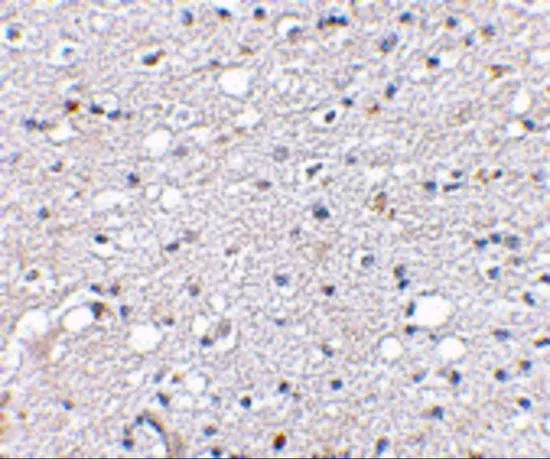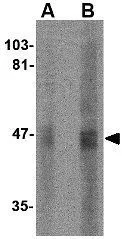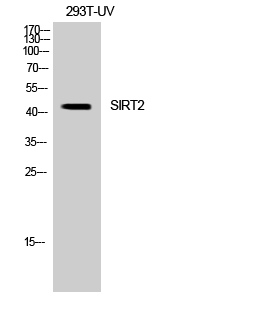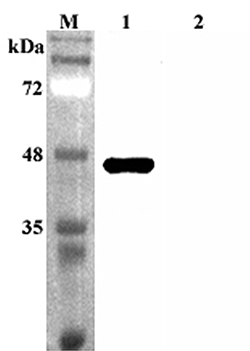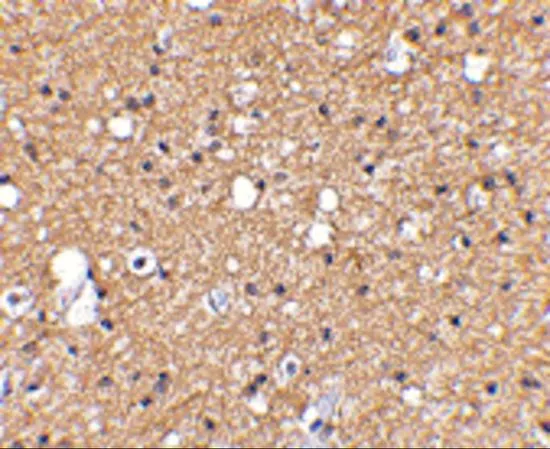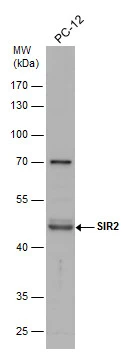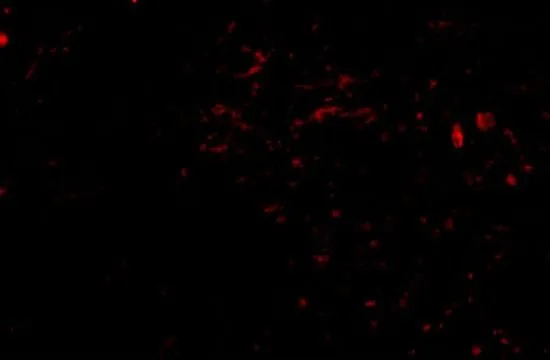
IHC-P analysis of human brain tissue using GTX31336 SIRT2 antibody. Working concentration : 20 μg/ml
SIRT2 antibody
GTX31336
ApplicationsWestern Blot, ELISA, ImmunoHistoChemistry, ImmunoHistoChemistry Paraffin
Product group Antibodies
ReactivityHuman, Mouse, Rat
TargetSIRT2
Overview
- SupplierGeneTex
- Product NameSIRT2 antibody
- Delivery Days Customer9
- Application Supplier NoteWB: 2.5 - 5 microg/mL. IHC-P: 2.5 microg/mL. *Optimal dilutions/concentrations should be determined by the researcher.Not tested in other applications.
- ApplicationsWestern Blot, ELISA, ImmunoHistoChemistry, ImmunoHistoChemistry Paraffin
- CertificationResearch Use Only
- ClonalityPolyclonal
- Concentration1 mg/ml
- ConjugateUnconjugated
- Gene ID22933
- Target nameSIRT2
- Target descriptionsirtuin 2
- Target synonymsSIR2, SIR2L, SIR2L2, NAD-dependent protein deacetylase sirtuin-2, NAD-dependent deacetylase sirtuin-2, NAD-dependent protein defatty-acylase sirtuin-2, SIR2-like protein 2, regulatory protein SIR2 homolog 2, silent information regulator 2, sir2-related protein type 2, sirtuin type 2
- HostRabbit
- IsotypeIgG
- Protein IDQ8IXJ6
- Protein NameNAD-dependent protein deacetylase sirtuin-2
- Scientific DescriptionThis gene encodes a member of the sirtuin family of proteins, homologs to the yeast Sir2 protein. Members of the sirtuin family are characterized by a sirtuin core domain and grouped into four classes. The functions of human sirtuins have not yet been determined; however, yeast sirtuin proteins are known to regulate epigenetic gene silencing and suppress recombination of rDNA. Studies suggest that the human sirtuins may function as intracellular regulatory proteins with mono-ADP-ribosyltransferase activity. The protein encoded by this gene is included in class I of the sirtuin family. Several transcript variants are resulted from alternative splicing of this gene. [provided by RefSeq, Jul 2010]
- ReactivityHuman, Mouse, Rat
- Storage Instruction-20°C or -80°C,2°C to 8°C
- UNSPSC41116161

